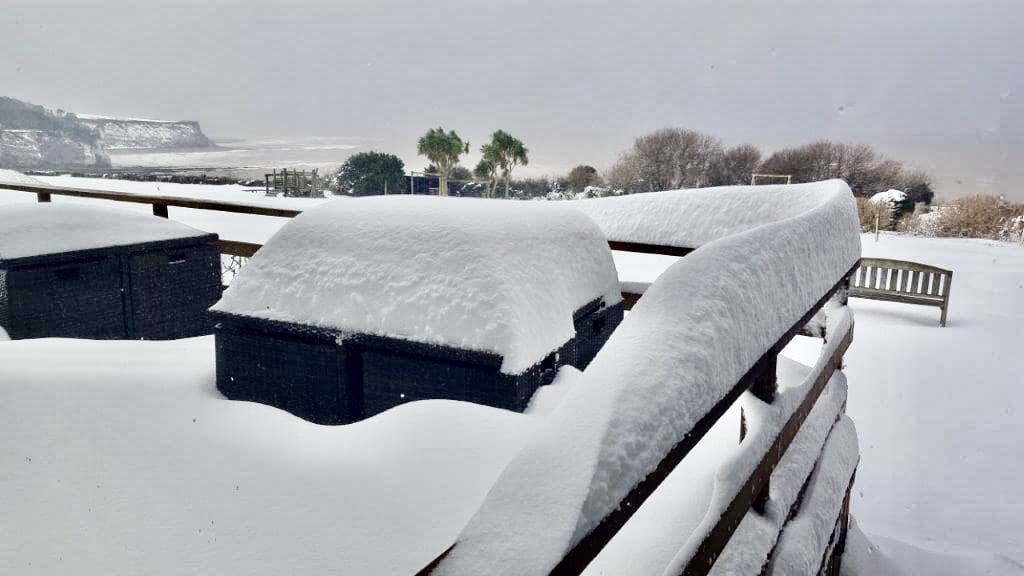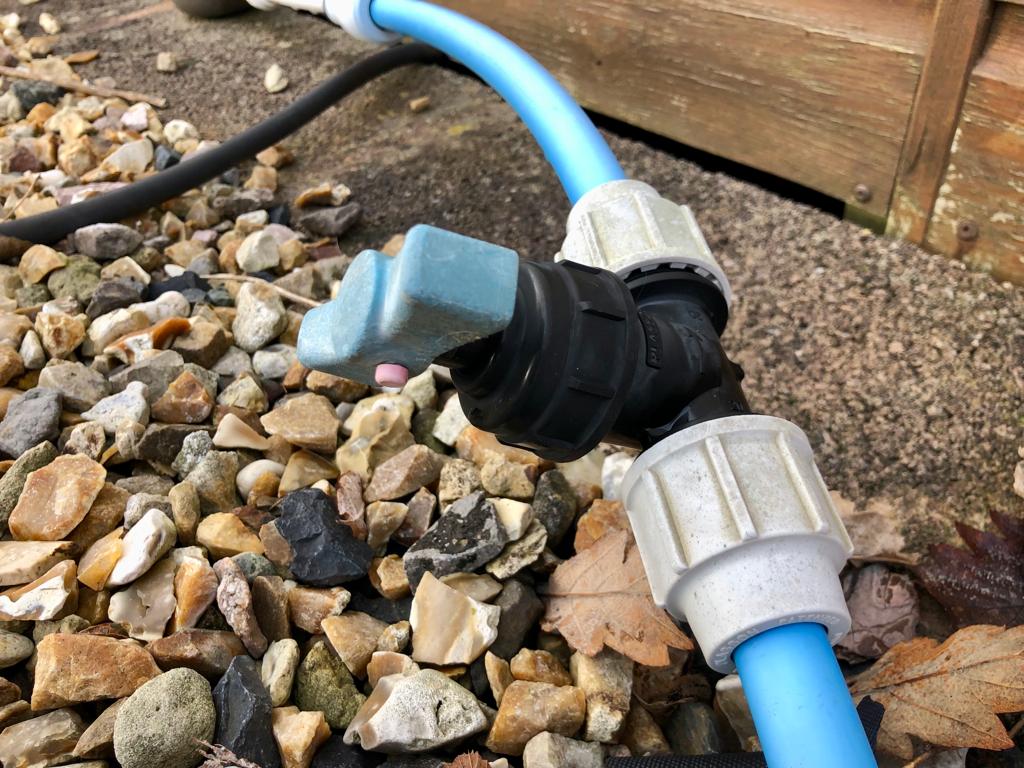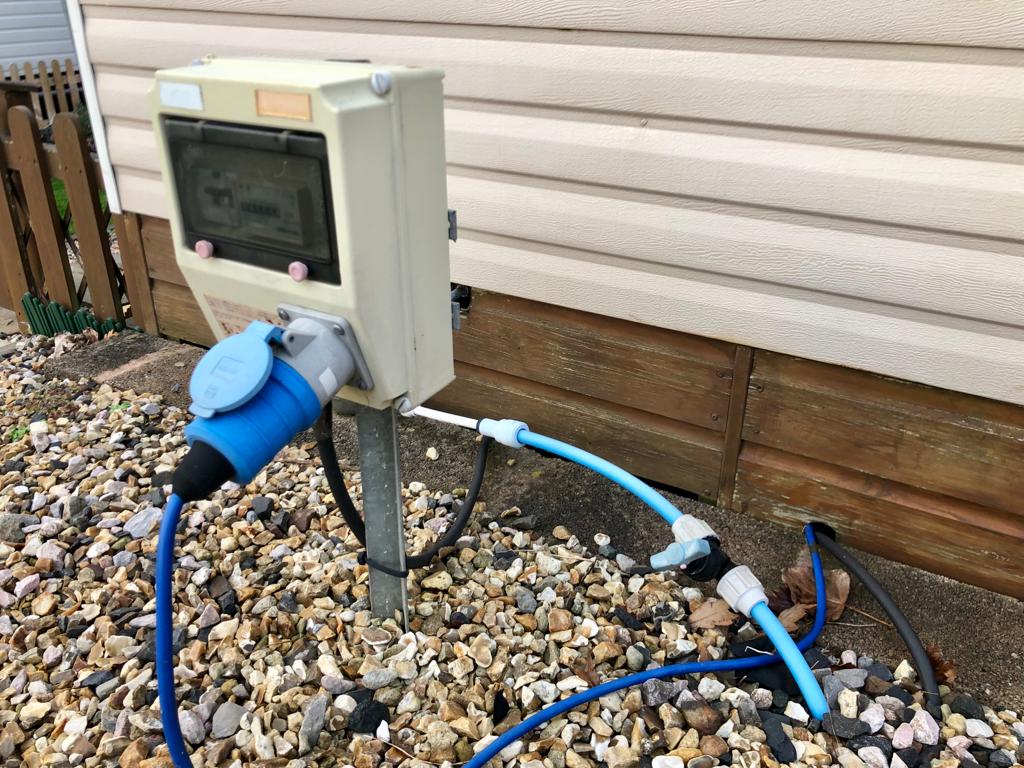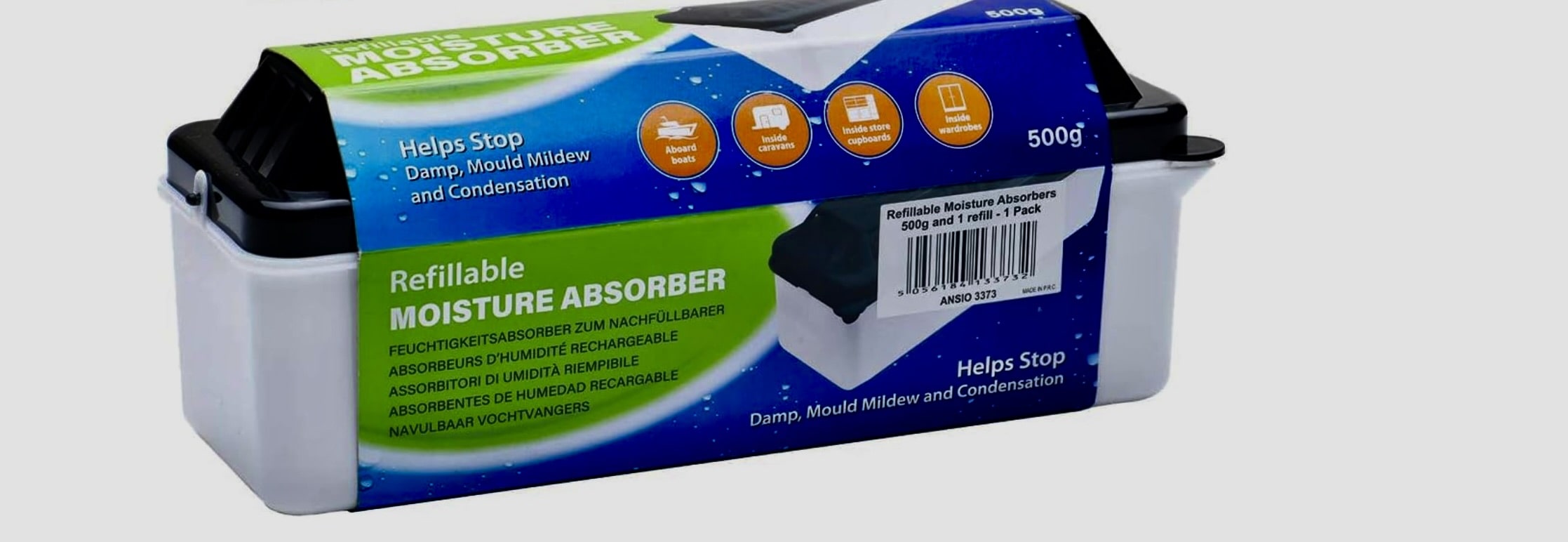How to winterise a static caravan
7th Nov 2024

How to winterise a static caravan
For many static caravan owners, the season is drawing to a close and as the temperatures drop, winterising your static caravan is vital. By implementing a few simple procedures you can protect your static caravan from the colder months and prevent frost, vermin and mould damage.
Most caravan insurance policies stipulate winterisation during the colder months so checking through your policy is a must.
In this article, we will address the main areas to focus on when winterising your static caravan. By following these simple steps you are limiting the amount of damage that can occur during the winter period making sure your static caravan is ready to use in the spring.
Read on to learn how to prepare your static caravan for the winter and use our checklist
Winterise a static caravan checklist
Caravan drain down
One of the most important things to do when you winterise a static caravan is to ‘drain down’ the static caravan completely. This means emptying all the water from the caravan including internal and external pipes, toilets and cisterns.
If water or fluid remains in the pipes, the cold weather can freeze it, causing the water to expand. This expansion can lead to burst pipes, cracks, and leaks, resulting in significant damage—especially if left undetected throughout the winter months.
Turn off your water supply to your static caravan
When preparing your static caravan for winter, the first essential step is to turn off the main water tap beneath the caravan. This can be completely disconnected. This is the blue pipe with the large tap.

Drain down plugs
Underneath the caravan, you will find several drain-down plugs. These are usually located beneath the bathrooms and the kitchen sink, although the number of plugs can vary from one caravan to another. These plugs can be removed or unscrewed. Additionally, there are two separate plugs located underneath the boiler. Please do not drain these, as this should only be done by a certified engineer. If your boiler has a frost setting, draining is not necessary.
Turn on all taps inside the caravan
Once you have turned off the water supply and opened the drain-down plugs, proceed to turn on the water taps in the kitchen sink, bathroom sinks, and the shower. This will help to empty all the water from the pipes, preventing them from freezing and breaking. No one wants to return to a flood in the spring. It’s also advisable to remove shower heads and hoses to blow out any remaining water. Additionally, add antifreeze to the waste pipes of the sink and shower. Our top tip is to place plugs back into the sink and shower drain holes to prevent bugs or pests from entering the caravan.
Flush the toilets when you winterise a static caravan
Flush the toilets and add anti-freeze to the remaining water and close the toilet lid. Add anti-freeze to the toilet cistern also. This can prevent cracks from occurring in the sanitaryware.
Once the drain-down of the static caravan is complete, there are some other good housekeeping tips to follow to prepare your caravan for the winter:
One of the most commonly asked questions we get asked is:
Should I turn off the electricity and gas when I winterise a static caravan?
There is not a clear answer to this question as it varies depending on the static caravan you own.
It can be a good idea to turn off your gas and electricity and unplug any electrical appliances. The electricity can be turned off by flicking the switch on the box outside. The gas can be disconnected at the bottle or turned off at the mains if supplied by mains gas.
However, if you have central heating with a combi boiler, you may choose to set the frost setting on the boiler and central heating system. You will need to check with the park owner to see if they are leaving the gas on if you have piped gas. You will need to leave the electricity on also, as the boiler will need to have an electric supply to function. The frost setting is a beneficial feature as the heating will kick in when the temperature drops below a certain limit. This is usually set around 5 degrees. It will help to prevent damp and frozen pipes. It is worth bearing in mind that there will be a cost involved to run this feature.

Have your boiler serviced
We recommend that you have your boiler serviced annually by a professional engineer to ensure the boiler is working efficiently. They will make sure the system has been topped up with the correct levels of anti-freeze to prevent the boiler from seizing up during the colder months which will prevent damage.
Security
During the winter months when parks are closed, it’s a good idea to keep the curtains open so it’s clear to people looking in that all valuables have been removed. This also allows the warmth of the sunshine inside. We recommend taking home expensive items, such as televisions, game consoles and any other expensive equipment to prevent theft from opportunists. Make sure all windows, and doors are locked and skylights are closed.
Leave the static caravan clean and tidy
Before you leave your static caravan for the winter, it is best practice to clean thoroughly, making sure all crumbs have been hoovered up and perishable foodstuffs have been removed. If you are going to leave tins, it’s best to leave them on some kitchen roll to prevent rust rings. Clean out the fridge and freezer with bicarbonate of soda and hold the doors open to prevent mould as these would have been unplugged. Remove batteries from clocks and alarms which can corrode over the winter.
Air the static caravan
When leaving the park before the winter, air the caravan throughout. Leave internal doors open and let the breeze and fresh air circulate. You can even open the wardrobe doors and kitchen cupboards to prevent the build-up of moisture. If you have any soft furnishings touching the walls, we suggest moving them away so they are not touching. Relocate the sofa cushions and soft furnishings like cushions to the centre of the room and cover them with a dust sheet.
Take home all of the bedding
The winter is a good time to clean your soft furnishings and freshen them up for the new season. Leaving them out in the caravan could invite rodents, so it’s best to either take them home or put them in an airtight container. It can be a good opportunity to freshen up curtains and voiles, thus preventing mildew.
Prevent mould and damp
One of the best tricks of the trade and common practice with caravan owners is to place bowls of salt or refillable dehumidifiers in each room including wardrobes and cupboards. Both methods effectively absorb excess moisture, preventing the growth of mould spores. This not only helps eliminate the musty smell often associated with damp caravans but also maintains a fresher environment.

Clean and tidy up the outside
As winter approaches, we can expect strong winds and heavy rain, particularly along coastal areas. Be sure to secure patio furniture and parasols to protect them for the upcoming season! Many caravan owners choose to clean the exterior of their caravans to prevent the accumulation of moss and other debris. However, this is a matter of personal preference; some individuals prefer to do this in the spring after winter has passed. It’s also important to pay special attention to gutters, ensuring they are clear and free of leaves. Make sure to check the bottom of the downpipes for any obstructions that could prevent water from flowing freely. Clogged gutters and overflowing water can lead to leaks and internal water damage.
Open all air vents
Make sure all air vents are left open to allow the air to circulate. They are particularly enticing to rodents, so our top tip is to cover them with a metal mesh cover. This will allow the air inside but will stop mice from entering the caravan. They can chew through plastic.
Mice and rodents
Rodents can pose a significant problem in caravans if proper precautions are not taken. They are attracted to warm and quiet places, often finding comfort in your soft furnishings. To prevent their entry, you can take several small but effective steps. Firstly, keep the area clean and free of food scraps. Secondly, remove any soft furnishings when the caravan is not in use and thirdly, seal all small holes or gaps. Check gaps around pipework, as these can serve as entry points. Use materials like wire wool or sealant to close these gaps. However, ensure that ventilation vents remain unsealed to maintain airflow.
For effective pest control, consider using an ultrasonic pest repellent. These devices can deter mice and rats by emitting ultrasonic sound waves that are inaudible to humans. They come in both plug-in and battery-operated models.
By following these measures, you can help keep rodents out of your caravan.
Park visits during the winter
During the park’s closed period, caravan owners are usually allowed to visit for day trips, but they are not permitted to stay overnight. Therefore, it can be beneficial to check on the caravan periodically throughout the winter, particularly after heavy rain, strong winds, or snowfall. If any damage occurs, addressing it quickly will minimize its impact.
Caravan insurance
Static caravan insurance is widely available so it is worth shopping around and checking the cover available. Most policies provide cover for flooding, adverse weather and leaks. However, they usually stipulate that a full drain down has been conducted if the park is closed. Failure to comply may result in non-payout.
We recommend Compass and Leisure Days which specialise in static caravan, lodge and park home insurance.
So, before leaving your static caravan for the winter it’s important to winterise your caravan. Many parks offer a drain-down service for a small fee which can provide peace of mind over the winter. They even connect it up for you again in the New Year!
If you would like to find out more about caravan ownership in the South West or beyond please contact us here. We have many new and used caravans for sale and can help you find the right location and park. You can call us on 01392 271 222.
Alternatively, you may be looking to sell your static caravan. We can help you sell your caravan on-site, finding you a new buyer quickly and without stress. If your licence has run out we may be able to buy the caravan from you. To read our commonly asked question, read: ‘Selling your static caravan privately’